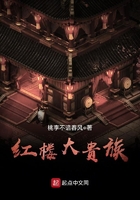duty, which was considered as by no means a light one.(28*)And now as to their status. The obligation to send the reeve and four men is enforced all through England, and for this reason it is prima facie impossible that it should be performed everywhere by freeholders in the usual sense of the word. There can be no doubt that in many, if not in most, places the feudal organisation of society afforded little room for a considerable class of free-holding peasants or yeomen.(29*) If every township in the realm had to attend particular judicial meetings, to perform service for the king, by means of five representatives, these could not but be selected largely from among the villain class. The part played by these representatives in the Courts was entirely in keeping with their subordinate position. They were not reckoned among the 'free and lawful' men acting as judges or assessors and deciding the questions at issue. They had only to make presentments and to give testimony on oath when required to do so. The opposition is a very marked one, and speaks of itself against the assumption that the five men from the township were on an equal standing with the freeholders.(30*) Again, four of these five were in many cases especially bound by their tenure to attend the meetings, and the reeve came by virtue of his office, but he is named first, and it does not seem likely that the leader should be considered as of lower degree than the followers. Now the obligation to serve as reeve was taken as a mark of villainage. All these facts lead one forcibly to the conclusion that the hundredors of our documents represent the village people at large, and the villains first of all, because this class was most numerous in the village. This does not mean, of course, that they were all personally unfree: we know already, that the law of tenure was of more importance in such questions than personal status.(31*) It does not even mean that the hundredors were necessarily holding in villainage: small freeholders may have appeared among them. But the institution could not rest on the basis of legal freehold if it was to represent the great bulk of the peasantry in the townships.
This seems obvious and definite enough, but our inquiry would be incomplete and misleading if it were to stop here. We have in this instance one of those curious contradictions between two well-established sets of facts which are especially precious to the investigator because they lead him while seeking their solution to inferences far beyond the material under immediate examination. In one sense the reeve and the four men, the hundredors, seem villains and not freeholders. In another they seem freeholders and not villains. Their tenure by the 'sergeanty' of attending hundreds and shires ranks again and again with freehold and in opposition to base tenure.(32*)Originally the four men were made to go not only with the reeve but with the priest; and if the reeve was considered in feudal times as unfree, the priest, the 'mass-thane,' was always considered as free.(33*) It is to be noticed that the attendance of the priest fell into abeyance in process of time, but that it was not less necessary for the representation of the township according to the ancient constitution of the hundred than the attendance of the reeve. This last fact is of great importance because it excludes an explanation which would otherwise look plausible enough. Does it not seem at first sight that the case of the hundredors is simply a case of exemption and exactly on a parallel with the commutation of servile obligations for money?
We have seen that villains discharged from the most onerous and opprobrious duties of their class rise at once in social standing, and mix up with the smaller freeholders. Hundredors are relieved from these same base services in order that they may perform their special work, and this may possibly be taken as the origin of their *******. Should we look at the facts in this way, the classification of this class of tenants as free would proceed from a lax use of the term and their privileges would have to be regarded as an innovation. The presence of the priest warns us that we have to reckon in the case with a survival, with an element of tradition and not of mere innovation. And it is not only the presence of the priest that points this way.
At first sight the line seems drawn very sharply between the reeve and the four men on the one hand, and the freehold suitors of the hundred court on the other: while these last have to judge and to decide, the first only make presentments. But the distinction, though very clear in later times, is by no means to be relied upon even in the thirteenth century. In Britton's account of the sheriff's tourn the two bodies, though provided with different functions, are taken as constituted from the same class: 'the free landowners of the hundred are summoned and the first step is to cause twelve of them to swear that they will make presentment according to the articles. Afterwards the rest shall be sworn by dozens and by townships, that they will make lawful presentment to the first twelve jurors.'(34*) The wording of the passage certainly leads one to suppose that both sets of jurors are taken from the freeholder class, and the difference only lies in the fact that some are selected to act as individuals, and the rest to do so by representation. The Assize of Clarendon, which Mr Maitland has shown to be at the origin of the sheriff's tourn,(35*) will only strengthen the inference that the two bodies were intended to belong to the same free class:















